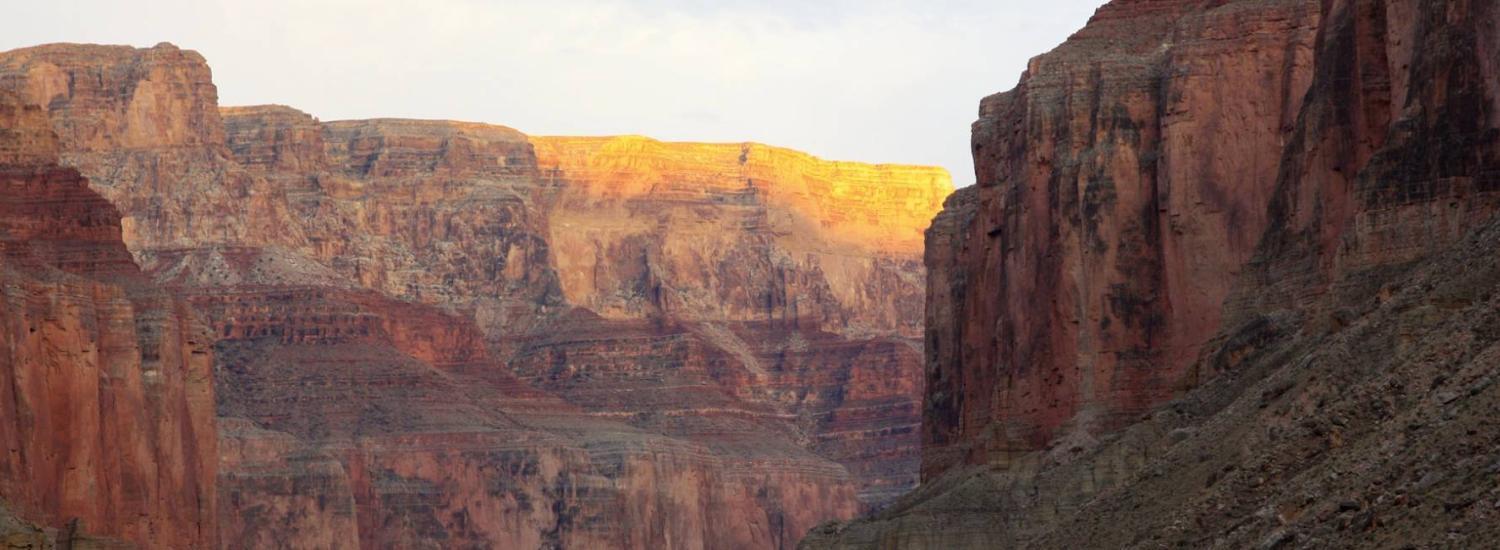A Flood of Support
NOAA funds CU Boulder-based Western Water Assessment for another five years

In 2013, the torrents of water that poured out of the mountains, ripping up roads and inundating Boulder, Lyons, Longmont and other Front Range communities, also resulted in a deluge of questions. Both the general public and local officials wondered just how unusual this rainfall and flooding had been. Had something like it happened before? Was anthropogenic (human-caused) climate change responsible?
“The intensity of the floods really caught a lot of us living in the region off guard,” said Lisa Dilling, director of the Western Water Assessment, which is part of the Cooperative Institute for Research in Environmental Sciences at the University of Colorado Boulder. Dilling is also a professor of environmental studies at CU Boulder. “But because WWA has a long history of working with water managers and planners in Colorado’s Front Range, we could quickly assemble regional experts to assess the disaster.”
Within ten days of the floods, WWA researchers and their partners at the National Oceanic and Atmospheric Administration and Colorado State University synthesized information about the atmospheric conditions that produced the floods, the potential role of climate change, and how these floods compared to others in the past. They released a 4-page handout at a public briefing and panel discussion. This rapid-response effort spurred additional WWA research projects to better understand Front Range flood risk, some of which are still ongoing - which is why the group was thrilled to find out that NOAA will support them with about $4 million for another five years.
The money comes from NOAA’s Climate Program Office, which has funded WWA since 1999. WWA, which focuses on Colorado, Utah and Wyoming, is one of ten teams under NOAA’s Regional Integrated Sciences & Assessments (RISA) program. It’s intended to help expand the country’s ability to deal with climate change by having scientists work with local and regional stakeholders and engage them as research partners.
For WWA, the NOAA agreement is invaluable. “NOAA’s support is our foundation,” said Dilling. “We are grateful for the recognition that our work in this intersection of environmental change and decision-making is relevant, important and timely.” In the last five years, WWA has issued a report examining how climate change in Colorado affects water resources, as well as a study on the state’s vulnerabilities to climate change: in tourism, recreation, education, public health and many other sectors. It also helped Salt Lake City, Utah evaluate the impact of a changing climate on their water supply. And WWA collaborated with the National Integrated Drought Information System (NIDIS) to create a report on climate change and the Navajo Nation.
In all of these projects, the goal has been to provide land managers, water managers and other officials with the best information possible so they can develop and enact effective policies.
Under this new round of funding, WWA plans to pursue three big research areas. One of those is to examine how the science developed by WWA and other research entities can be made more useful to decision-making. “We’re interested in enhancing the usability of science,” said Jeff Lukas, Research Integration Specialist with WWA. “We want to involve stakeholders in everything we do. And we want to spread our model of two-way dialogue and collaboration between scientists and stakeholders.”
Another big area of research over the next five years will be vulnerability and adaptation. WWA plans to focus on how Utah, Colorado and Wyoming are vulnerable to climate change, as well as how to design more adaptive and resilient systems, looking specifically at water supply.. Lukas also points out that adaptation and resilience aren’t just about infrastructure, like roads, buildings, and bridges. They’re also about getting organizations to think differently when it comes to climate change.
And, finally, in an extension of their work on the 2013 floods, WWA wants to better understand extreme weather and climate events and help to use that understanding to inform future decisions. “We need to glean all the information we can from the rich historical record,” says Lukas. “And also tease out what the climate models can really tell us about changes in these events going forward.”
"Every day, communities and businesses in the U.S. and around world are grappling with environmental challenges due to changing climate conditions and extreme events," said Wayne Higgins, director of the NOAA Climate Program Office, which announced funding for WWA and other programs today. "People want timely and relevant scientific information about where and why climate is changing, and what impacts that has on human and natural systems. CPO's competitive grants play a vital role in advancing understanding of Earth's climate system and in transitioning our data, tools, information, and operations to applications the public can use to improve decision making.”